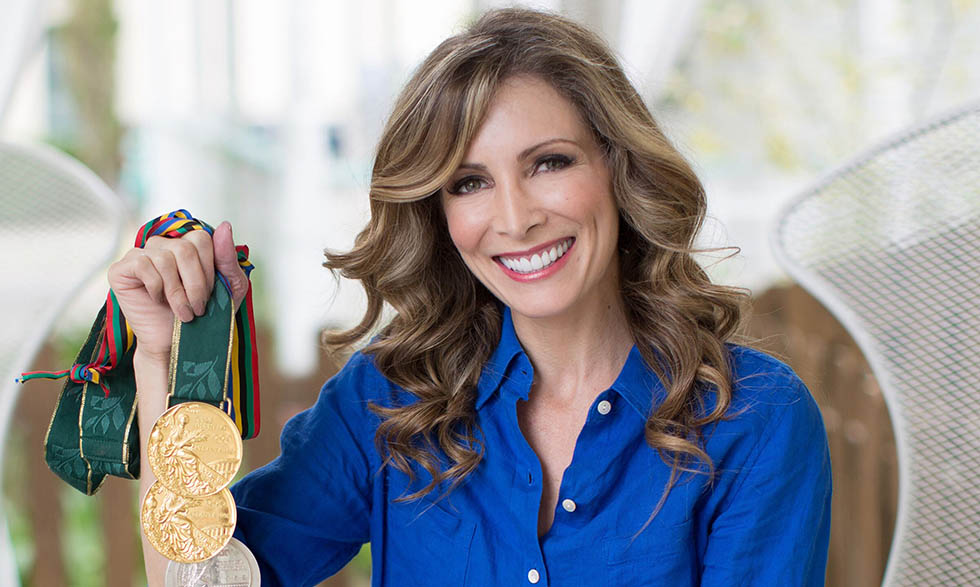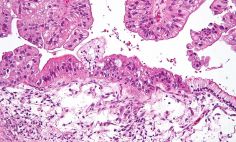Gymnast Shannon Miller captivated the world on her way to Olympic gold. Now the seven-time Olympic medalist and women's health advocate holds another title: long-term cancer survivor. Miller says that though cancer treatment was one of the hardest parts of her life, her family and health teams helped her reach recovery and stay positive along the way.
When were you diagnosed with ovarian cancer?
In the fall of 2010, my doctor found a baseball-sized cyst on my left ovary. On January 13, 2011, I woke up from surgery to remove the tumor to news that I had a rare form of ovarian cancer. I was only 34.
Had you experienced any symptoms prior to finding the cyst?
It wasn't until after the diagnosis that I rethought my symptoms prior to that initial doctor's visit. My husband reminded me that I had called him at work a couple of weeks before because I was doubled over on the floor with stomach pain and wasn't sure I could get our 1-year-old son out of his crib.
I also realized that I had three of the four primary symptoms of ovarian cancer: bloating, weight loss, and pain. But I had completely written them off. I didn't even remember them. That is why it is so important for me to talk about this to women. As women, as moms, we need to listen to our bodies.
How did your skills and experience as a world-class gymnast help you approach your cancer recovery?
As an athlete, I learned the importance of setting and sticking to goals and keeping a positive attitude. Going through chemotherapy was the toughest thing I have ever had to do. Being in that positive mindset was so critical. That doesn't mean being cheery 24/7. But I was trying to look to the positive and tell myself that I could do this. I started setting achievable goals for myself. Even if it was as basic as walking around the dining room table twice. If I could do that, it was a win for the day. Little by little, I was able to do more and get stronger.
Even with this, I hit my low. I was having horrible nausea at one point and couldn't keep anything down. I ended up back in the hospital. As I sat alone in my hospital room, I thought, "I can't do this. I don"t know how to do this." Then a nurse came in to check on me. It brought back to me my experience from gymnastics and the importance of having a team. From that moment forward, I knew I had a team of health professionals, family, and friends working with me to get through this.
How did you manage being a mom of a young child and recovery from cancer?
It does take a village when going through a health crisis. I had to learn a tough lesson: I can't do it all. And it's OK that I can't do it all. I think, naturally, as parents, we do everything. And I couldn't. After talking with friends, I realized that if I didn't focus on my own health and recovery, I was not going to be any good to my son. One of the hardest and most important things we have to learn is to ask for help and accept help when it is offered.
What are your thoughts about research like that supported by the National Institutes of Health?
Research is so vital. We need a better test to identify ovarian cancer earlier. We need to be better educated.
As a 10-year cancer survivor, what is your message to other women with cancer or those who may be at risk for it?
It is so important to be aware of your body and look out for signs and symptoms. Educate yourself and ask questions. You are your own best health care advocate. Take stock of your body. I paid attention to my body as an athlete, but I have paid much more attention to my health in the last 10 years. I took good health for granted.
Finally, don't be afraid to speak up about it. Try to find others who have gone through this. When I heard from other survivors, it made me feel less alone, and that is really important.







